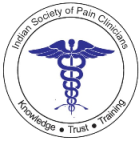Course Curriculum (PDCC)
PDCC (Pain Medicine)
Prevalence, magnitude of Problem of chronic and cancer pain
Brief History
(A) Anatomy and Physiology
Peripheral Mechanism
Central Mechanism
Pain Modulation
Pain Measurement
(B) Pharmacology of pain transmission and modulation
Peripheral Mechanism
Synaptic transmission in dorsal horn
Central sensitization
Neurotransmitters in pain modulation
(C) Psychosocial aspect of pain
Definition and measurement of pain
Individual differences
Behavioral processes
Emotional problem and psychiatric disorders associated with pain
(D) General principles of pain evaluation
Diagnosis; Clinical History Patient Examination , Investigation: Interpretation in reference to various Pain Syndromes:
PCR (Tuberculosis)/ Anti–ccp / HLA B-27
Radiological: X-Ray, MRI,CT, CT angio, Bone Scan, BMD/DEXA
Neurological:NCV/ H-Reflex
Plethysmography
(E) Drug treatment
*Analgesics,* NSAID,* Antidepressant, anticonvulsant and miscellaneous agents :
Narcotics Morphine, Oxycodone, Hydromorphone, buprenorphine, Methadone, Tramadol,Fentanyl
Adjuvants: TCA, SSRI , Dothiapine, Milcipram, Duloxitine, Gabapentine, pregabalin
Bisphonates, Calcitonin, Parath. Hormone
Neurotropic / Vitamin: Methocobalamine, Vit E, Vit D, Folic Acid
Musle relaxanats: Baclof
Miscellaneous: L-Carnitine, Botulinum Toxin, Hylaronate, Synvis one
Anti rheumatoid(DMRD): Lefrunomide, Shalazopyrin,Methotrexate,
Biologicals, Steroid
Neurolytic Drugs: Alcohol, Phenol, Chlorocresol, Hypertonic Saline, anhydrous Glycerol, Ozone , RadioFrequency(Auto/ Pulse) , CryoLesion
Anti Tubercular Drugs
(F) Aetiopathogenesis,
clinical history, Examination, Diagnosis , D/D, Management , complications and Follow Up of following Pain Syndromes:
Headache/ Migraine/ Trigeminal Neuralgia
Discogenic Pain / IDD( Intradisclal Disc Disruption)
Lumbar Canal Stenosis(LCS)
Facet Joint Arthropathy, Kochs Spine, Discitis (tubercular/ Pyogenic))
Osteoarthritis,Osteoporosis,Ankylosing Spondylitis,Rheumatoid Arthritis
Sacroilitis,Coccidynia
Urogenital Pain Syndromes
Lowbackache
Neuropathic Pain
Complex Regional Pain Syndromes(CRPS)
Management of Cancer Pain:
Magnitude of problem, Aetio pathogenesis, Clinical presentation, Diagnosis and Management of Cancer Pain
Medication: NSAID, Narcotics( Morphine,Codiene, Tramadol,Oxycodone,Hydrmorphone,Methadone,Fentanyl( Patch/Nebulised)
Adjuvants
WHO Analgesic Ladder / WHO Cancer Pain relief Programme
Neuroablative Procedures
Vertebroplasty
Percutaneous Chordotomy
Intrathecal/ Epidural Infusion Device
(G) Non surgical neuroaugmentative technique
Stimulation techniques
TENS
Acupuncture
Vibration
Nerve blocks
Surgical approaches
Physical medicine and rehabilitation
Psychiatric and Psychological treatments
Multidisciplinary management
Spinal Cord Stimulation
(H) Interventional pain medine
Radiofrequency (RF) Ablation technique
Gasserian Ganglion RF Lesion
Balloon Compression of Trigeminal Ganglion
Cervical Discectomy ( Ozone/ RF)/ MBB RF lesion
Stellate Ganglion RF lesion
Celiac Plexus Block ( Trans Discal/ Trans Aortic
Splanchnic Nerve RF lesion
Supra scapular RF lesion
RF Discectomy/ Nucleotomy(APLD)
Medial branch RF lesion
Sacroiliac Inj., Ganglion impar RF lesion
Superior Hypo gastric Plexus Block( Trans Discal)
Post-operative pain – PCA/PCEA
Endoscopic Pain Medicine
Pain in children
Obstetric analgesia
Physiotherapy
Psychotherapy, Counselling
Hypnotherapy, Yoga
Stem Cell Therapy/ Genetic Basis of Pain
Ethical aspect of pain medicine
Euthanesia
Research( Pain medicine)
Palliative Care: Cancer/ AIDS/ Motor Neurone Disease:
Cancer Pain: Prevalence , magnitude of problem , current status , WHO cancer Pain Relief Programme
Definition , essentials of Palliative Care
Physical aspect
Disease process
Symptom control: Pain, Anxiety, depression, anorexia, asthenia, Lymphoedema, ascites
Pharmacological management of cancer pain
Management of terminally ill patients- last 24 hours
Family and social background
Communication skills, breavement
Religious and cultural aspects
Ethical aspect
Team work
Organizational aspect: Home, Hospice and Hospital based Palliative care
Research in Palliative care
Training and teaching schedule:
Clinical training:
Candidates will be posted 3 days in OPD (Tuesday, Wednesday, Friday) and three days in PainOT( Monday, Thursday, Saturday)
Ward teaching
Seminar, Journal Club, Case presentation, Clinical Audit
Lectures by Faculty / Sister departments
Neurology
Radiology
Psychiatry
Physiotherapy
Log Book
(I)LIST of Books Recommended
Pain Medicine & Regional Anesthesia- Benzon
Chronic Pain- Mareus
Pain Medicine- Requisite in Anesthesiology; Stephen E Abram
Bonica Management of Pain; Third Edition; Lippincotts, William & Wilkins
The Management of Chronic Pain; A W Diamond; IInd Edition; Oxford University Press
Image Guided Pain Medicine; Sebastian Thomas; Lippincott-Raven
The Treatment of Chronic Pain; F Dudley Hart
Waldman’s Atlas of Uncommon Pain Syndrome; Saunders
Pain Procedures of Clinical Practice; Luinardd; IInd Edition
Principals & Practice of Regional Anesthesia; IIIrd Edition; J A W Wild smith; Churchill Livingstone
Regional Anesthesia- An Illustrated Procedural Guide; IIIrd Edition; Michael F Mulray; Lippincotts, William & Wilkins
Textbook of Pain; IVth Edition; Wall & Melzack; Churchill Livingstone
Textbook of Pain; IIIrd Edition; Wall & Melzack; Churchill Livingstone
The Pain System; Wiliams & Willis; Karger
Prithviraj Practical management of Pain; P Prithviraj; IIIrd Edition;
Chronic Pain; Benzamin L Crue; S P Medical & Scientific Books
Advances in Pain Research & Therapy; Vol.-1; John J Bonika; Raven Presss
The Physiology of Pain; Richard A Steinbach; Raven Press
Interventional Pain Medicine; Steven D Waldman
OXFORD Textbook of Palliative Medicine; by Derek Doyle; Oxford Medical Publication
Textbook of Pain Medicine; IInd Edition; by Murlidhar Joshi; Joshi Institute of Pain
Radiographic Imaging for Regional Anesthesia and Pain Medicine; by P Prithviraj; Churchill Livingstone
(J)Journals
Pain-Official Journal of International Association for Study of Pain
Indian Journal of Pain, Indian Journal of Palliative Care
